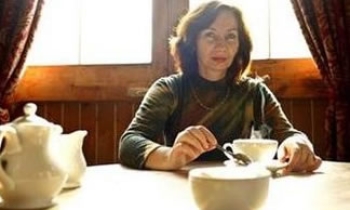PARIS (Reuters) - A black journalist is due to host the most watched evening news in France on Monday, a first in a country that has been rocked by violent protests in some of its poorest and most ethnically mixed neighbourhoods.
Non-white television journalists are common in Britain and the United States but France's ethnic minorities are less visible in news media, particularly on the two flagship news shows broadcast daily at 8 p.m. and watched by millions.
Harry Roselmack, 33, will fill in for presenter and national celebrity Patrick Poivre d'Arvor for the summer in a move that has been making headlines in France for weeks.
"The first news tonight on the 8 o'clock news on TF1 will be a kind of scoop: a black journalist will be presenting it," the le Parisien newspaper said.
"TF1 discovers colour television" the left-leaning Liberation daily quipped.
A black woman presents the less high-profile news on state-run France 3 and a man of Algerian origin has presented the evening news on France 2, TF1's main public sector rival.
French President Jacques Chirac asked television stations to put more people from "visible minorities" in front of the camera after youths in poor suburbs -- many of them home to descendants of immigrants -- went on the rampage last year in a wave of rioting that shocked the country.
GOOD JOURNALIST
Roselmack's colleagues said he was an excellent journalist with more to him than his fine features.
"Harry Roselmack is perfect," Liberation said in an article quoting co-workers at his previous employer, news channel i-TELE. It also lauded his good looks.
"He has a real vision of news, very honest, full of rigour," Liberation quoted a former colleague as saying.
French anti-racism group SOS Racisme said the appointment was a positive step but added much more needed to be done to open recruitment to ethnic minorities.
"The channels recruit from the five same top elite schools, which recruit from the five same top preparatory classes, which recruit from the five same top high schools, which are themselves in neighbourhoods where the catchment areas mean there is not a crazy (racial) mix," a spokeswoman said.
TF1's head of news, Robert Namias, defended his station's record, telling the Le Monde daily that a dozen of its 200 editorial staff were from ethnic minorities.
"We have always said that they must have the skills too," he said, adding that the country's minorities were right to demand better representation.









